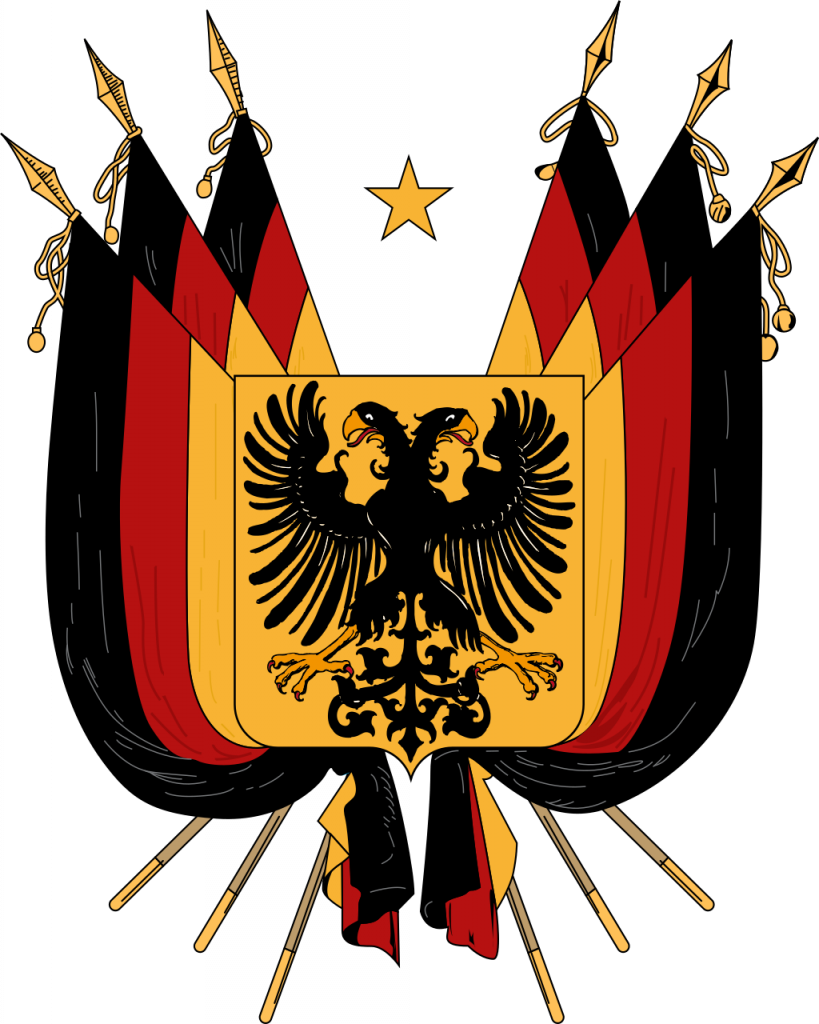The Frankfurt Parliament, a significant assembly in the history of Germany, was convened during a period of widespread revolutionary upheaval across Europe. It represented the liberal and nationalist aspirations that emerged from the 1848 revolutions. Here’s a detailed overview –
Origins and Context
European Unrest:
- The Revolution of 1848 was marked by widespread economic hardship and ideological shifts towards liberalism and nationalism across Europe. This period, known as the “Springtime of Nations,” saw numerous uprisings aimed at overthrowing old autocratic regimes and establishing more democratic and nationalistic governance structures.
Liberal and Nationalist Aspirations:
- The revolution was significantly propelled by the educated middle class, who sought constitutional reforms, national unification, and the end of autocratic rule. Economic liberalism pushed for free markets and the removal of trade barriers, while social liberalism aimed at dismantling the class hierarchy and aristocratic privileges.
The Frankfurt Parliament was a big deal in German history. It happened in 1848 during a time when many European countries were having revolutions. People were tired of living under kings and wanted more say in how their countries were run. The parliament was made up of middle-class folks who wanted a new Germany with a constitution and fair rules. They tried to make a new government, but the king didn’t like the idea and stopped them. The parliament also had trouble getting support from regular folks, like workers and artisans. Women wanted to join in too, but they weren’t allowed to vote or be part of the parliament. Eventually, the parliament was shut down by force, but its ideas lived on and helped shape Germany’s future.
The Frankfurt Parliament

Formation of Frankfurt Parliament
- In the wake of the February Revolution in France and inspired by similar movements across Europe, political associations in the German regions, comprising middle-class professionals, businessmen, and artisans, convened in Frankfurt to form an all-German National Assembly. This assembly, meeting in the Church of St Paul on May 18, 1848, became known as the Frankfurt Parliament.
Objectives and Actions
- The Frankfurt Parliament’s primary goal was to draft a constitution for a unified German nation under a constitutional monarchy. It represented a significant effort by the liberal middle class to shape a nation-state based on parliamentary principles, including freedom of the press and association.
Challenges and Opposition
Monarchical Resistance
- The proposal to establish a constitutional monarchy was ultimately rejected by Friedrich Wilhelm IV, King of Prussia, who, along with other monarchs, opposed the elected assembly. This resistance highlighted the deep-seated tensions between the revolutionary aspirations of the middle classes and the traditional power structures of the monarchy and aristocracy.
Social and Political Fractures
- The parliament faced internal divisions and was unable to maintain the support of the broader population, including workers and artisans. The social base of the parliament eroded as it resisted incorporating the demands of these groups, leading to a loss of support and effectiveness.
Women’s Rights and Participation
Controversial Issue
- The extension of political rights to women was a contentious topic within the liberal movement. Despite active participation in political associations, founding newspapers, and engaging in demonstrations, women were largely excluded from suffrage and could only observe the proceedings of the Frankfurt Parliament from the visitors’ gallery.
Diverse Perspectives
- The debate over women’s rights within the context of the Frankfurt Parliament and the broader liberal movement reflected a range of views, from conservative notions of gender roles to more progressive calls for equality and recognition of women’s contributions to society and the state.
Legacy and Aftermath
Suppression and Disbandment
- The Frankfurt Parliament was eventually suppressed by military force, and its members were dispersed. The inability to implement its constitutional vision marked a temporary setback for liberal and nationalist movements in Germany.
Long-term Impact
- Despite the immediate failure of the Frankfurt Parliament, the ideas and aspirations it embodied persisted. The revolutions of 1848 and the actions of the Frankfurt Parliament laid foundational stones for future liberal and nationalist movements in Germany and contributed to the eventual unification of Germany in 1871.
Also Check – The Role of Women in Nationalist Struggles – Short note
Also Check – The Congress of Vienna – 1815
Also Check – Romanticism- Class 10 – Chapter- The Rise of Nationalism in Europe
Also Check – How was the history of nationalism in Britain unlike the rest of Europe?
Also Check – Giuseppe Mazzini – Italian Revolutionary thinker
Also Check – Giuseppe Garibaldi- Italian freedom fighter
Also Check – Count Camillo de Cavour
Also Check – The Rise of Nationalism in Europe- 39 Mcqs
Also Check – The Rise of Nationalism in Europe – Class 10 – Notes
Also Check – Otto von Bismarck- Architect of German Unification
Also Check – Briefly trace the process of German unification
Also Check – Napoleon and the Napoleonic Code- Impact on European Societies and Legal Systems
Also Check – Why did Nationalist Tensions Emerge in the Balkans
